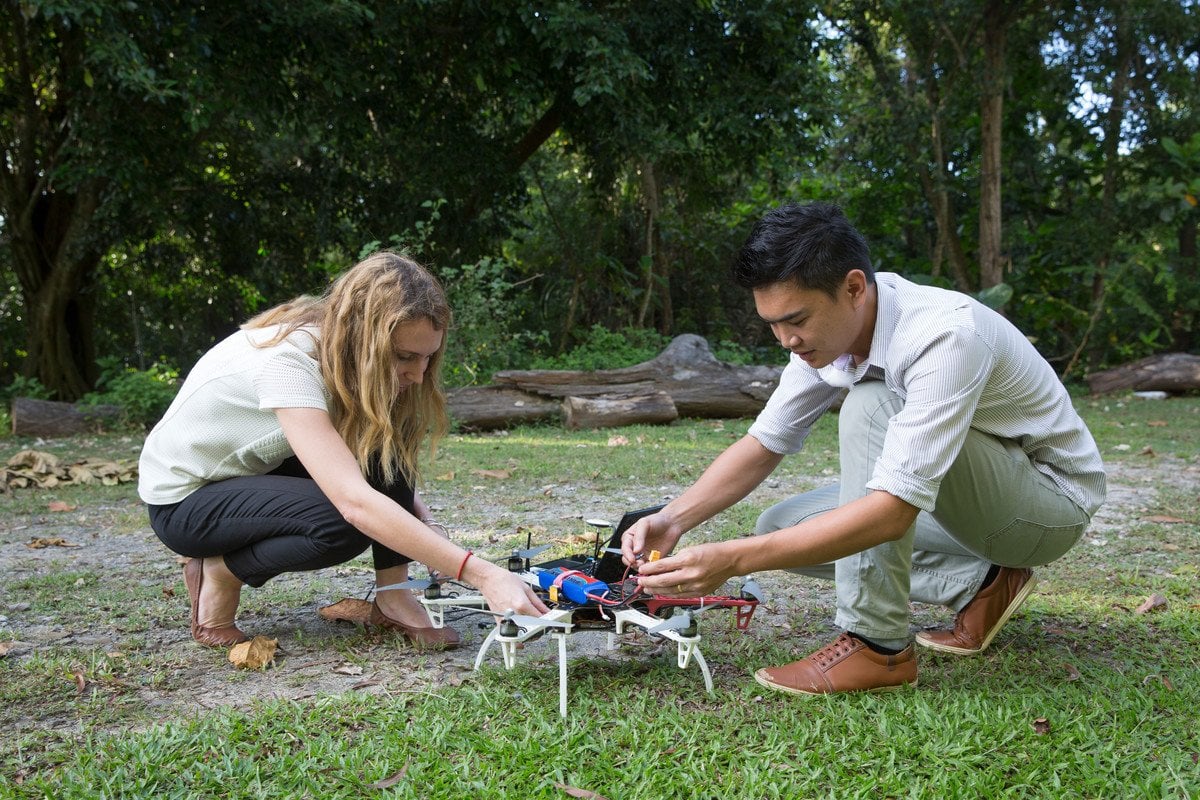Students, academics and professionals come to the London School of Hygiene & Tropical Medicine (LSHTM) from all over the world. We are one of the world's leading public health universities, combining research excellence with prestigious educational programmes. When you join us, you are joining a truly global network with a strong international presence and collaborative ethos.
We're in this together. With a rich history of 125 years of world-leading research and teaching, LSHTM has built a strong and diverse international network of academics, alumni, students and partners. They all contribute to our mission of improving health worldwide, and have helped to establish our place as one of the world’s leading public health universities.
Our students cherish the chance to learn from top experts with current real-world research experience, as well as their peers who bring a wealth of skills themselves. We're proud to train the next generation of public health leaders, managers and researchers to take on the new challenges of our changing times. We believe the future of public and global health has to be built on an ongoing commitment to improving the lives of everyone in society. That's why our staff and students based in London and around the world, as well as large teams in our Units in The Gambia and Uganda, are united in a collective vision: to help create a more healthy, sustainable and equitable world for everyone, because we believe our shared future depends on our shared health.
Rankings and awards
LSHTM consistently ranks highly in various global university league tables, and has a strong academic and media presence worldwide.
- Awarded the Queen's Anniversary Prize for Higher and Further Education in 2021 for our world-leading work on COVID-19 and pandemic preparedness.
- #2 in the world for Public, Environmental and Occupational Health and #4 for Infectious Diseases (US News Best Global Universities Subject Ranking 2022)
- #3 in the world and #1 in the UK for Public Health - ShanghaiRanking 2023
- #1 for the key measure of impact, providing the highest quality contribution to the economy or society - Times Higher Education REF2021 Impact Scores
- #1 in the UK for the proportion of research papers that are open access - 2024 CWTS Leiden Ranking
- #1 in the UK for % of research published by female authors - 2024 CWTS Leiden Ranking
- #18 in the world for medicine - 2023 QS World University Rankings
- Ranked in the top 30 for our COVID-19: Tackling the Novel Coronavirus free online course (Class Central's Best Online Courses of the Year 2021)
- 91% overall student satisfaction - Postgraduate Taught Experience Survey 2019-20
- Awarded the Queen's Anniversary Prize for Higher and Further Education in 2017 in recognition of our response to the 2014/15 Ebola epidemic in West Africa
- #1 University of the Year 2016/17 - Times Higher Education awards
Student experience
Our students truly reflect the global nature of LSHTM. The diversity of backgrounds, interests and experience they bring from all over the world creates an enriched learning experience. Don't just take our word for it, read about their experience and postgraduate life on our student blogs.
Student support
Our Student Support Services Team offers a range of support, guidance and specialist services to help students make the most of their study experience and settle into London life. We provide guidance on accommodation, banking and transport and accessing faith communities and spiritual networks, as well as supporting students with a disability or learning difficulty such as dyslexia, to get tailored support.
We also provide support for emotional wellbeing and mental health. Students can speak to us about any problem they are facing, study-related or not, by booking free, confidential one-to-one sessions with one of our professional counsellors or Mental Health Advisor. We also offer group sessions on mindfulness and managing stress, to help students overcome anxieties alongside their peers.
Research in action
LSHTM is uniquely placed to bridge the gap between academia and global issues, shaping health policy and translating research findings into real-life impact. At LSHTM, we're working on new approaches to help people and communities get ahead. For example, by harnessing the power of health data and analytics to predict potential futures, by researching the long-term effects of climate change on planetary health, and by training the next generation of public health leaders.
COVID-19
LSHTM was in a unique position to act when COVID-19 hit the world. Emerging infections and preparing for epidemics is a strategic priority for research and education, and specialist teams were set up to support responses to crises as they were unfolding, Experts were at the forefront of national and international efforts, from analysing data and modelling the spread, control measures and impact of the virus, to tracking attitudes and sentiments around vaccines. Clinically-trained staff and students immediately returned to work in the NHS, while staff and alumni based in Africa scaled up surveillance, diagnostic and testing capacity, and supported national governments and Ministries of Health on mitigation efforts.
More about our COVID-19 response
Public Health in the UK
The UK introduced a 'sugar tax' on sweetened drinks in April 2018 as part of the Government's childhood obesity strategy. It aims to reduce sugar consumption by persuading companies to reformulate their high sugar brands and avoid paying the levy.
In the first study of its kind, published in April 2018, LSHTM Professor Richard Smith, working with Dr Cornelsen and others, found that extending fiscal policies to include sweet snacks could lead to larger public health benefits, both directly by reducing purchasing and therefore consumption of these foods, and indirectly by reducing demand for other snack foods and sweet drinks.
More about our sugar tax research
Tackling Deadly Disease Outbreaks Worldwide
During the 2014/15 Ebola outbreak LSHTM staff assisted in response planning, conducted clinical trials of vaccines and treatments which showed promising results, and volunteered on the frontline in treatment centres.
In 2016, LSHTM was chosen to jointly run the Government funded UK Public Health Rapid Support Team in partnership with Public Health England, to respond to disease outbreaks before they develop into health emergencies.
More on the UK Public Health Rapid Support team
Innovation in Health Research
Peek, developed at LSHTM, is an adapted smartphone that can carry out eye tests and diagnose vision problems. It has been tested as a potential tool to revolutionise blindness prevention in low-income countries.
The Monkeybar project studies Plasmodium knowlesi, a malaria parasite previously thought to only affect macaque monkeys but now increasingly found to affect humans. LSHTM is pioneering the use of drones to understand how environmental factors influence the spread of infectious diseases like this one.
More on our research with drones
Research with Real-life Impact
You can read more about our work on topics including malaria, vaccines, sexual health, the NHS, climate change, maternal health, antimicrobial resistance, outbreak response and more by visiting our features page.








